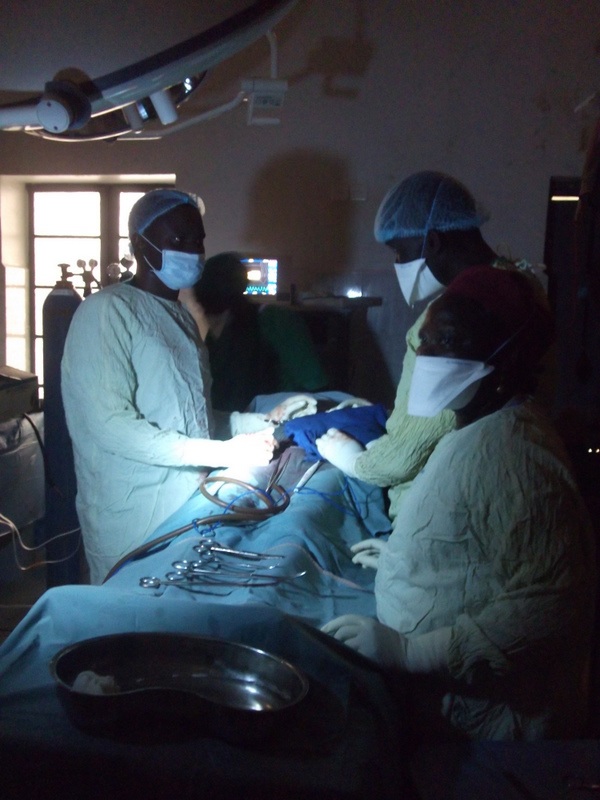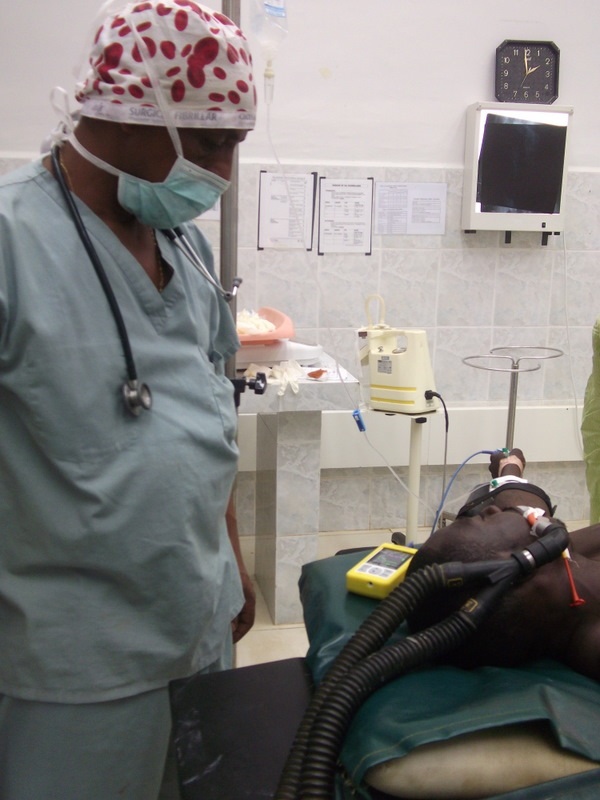Spotlight on South Sudan
“South Sudan is a brand new country, adjusting to its newfound independence. The infrastructure and the finances are not yet fully developed, and Juba Teaching Hospital frequently has no electricity or running water. However, when there is emergency surgery to be done, we have to work in spite of this. It is not uncommon to start a procedure with electricity and finish without.
The anaesthetic medical assistants make the best of working within an extremely resource poor setting. Their ability to “make do and mend” is inspiring. However, I soon realised it was not possible to mend everything and there are some things that you’d really prefer not to do without, pulse oximeters included. The theatre building comprises of three theatres and only one had access to a functional oximeter – and that was mains electricity dependent, lasting only a few minutes on battery power when the electricity cut.
The day that I took the Lifebox oximeters to work, we had a patient who required an emergency laparotomy for bowel obstruction. Soon after the rapid sequence induction and intubation the electricity cut. One of the other anaesthetists immediately went to get an oximeter and we all breathed a sigh of relief when the display demonstrated a good waveform and healthy oxygen saturations.
Pulse-oximetry saves lives. Being able to monitor the saturations of all of our patients undergoing procedures in any of our theatres will make our working life less stressful and our practice safer. Having to choose which patient to monitor and delaying surgery because of a lack of basic monitoring are problems that myself and the other anaesthetists at Juba Teaching Hosptial will no longer have to worry about.
Thank you Lifebox! Now on to trying to solve those 101 other issues…”



